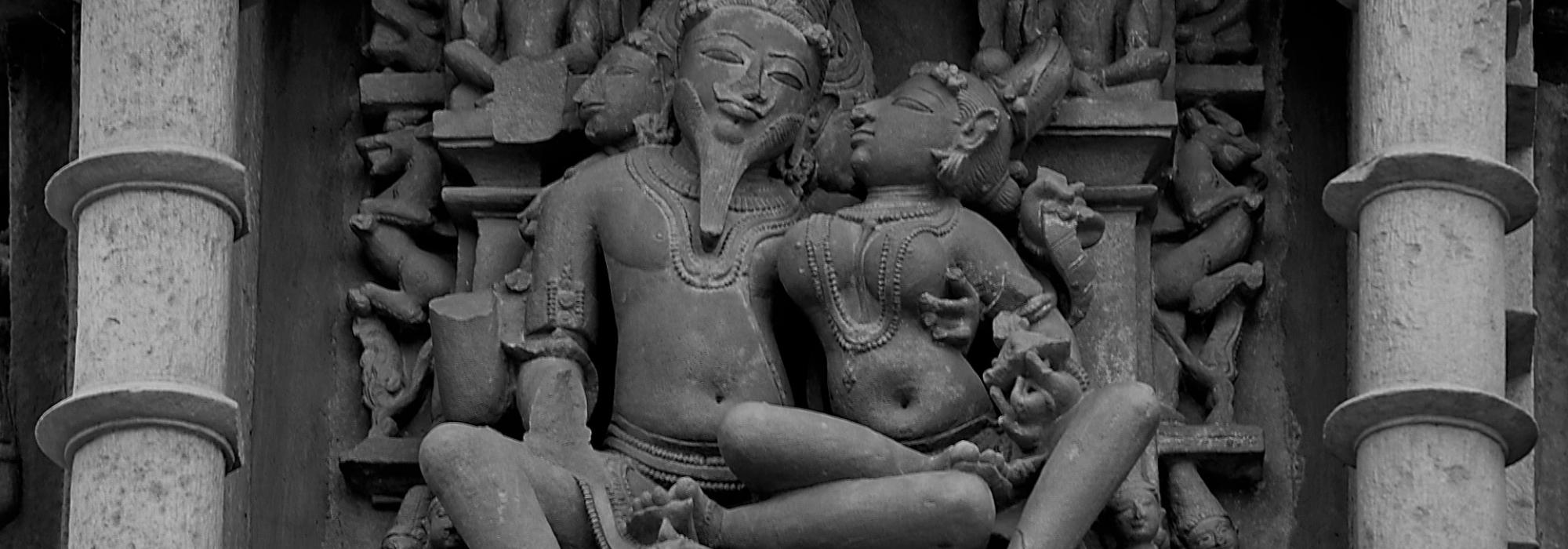Lolla Lakṣmī-dhara (15th–16th cen. CE) was a scholar-poet in the court of Kṛṣṇa-deva-rāya. He is well-known as the author of Lakṣmī-dharā, arguably the best available commentary on Saundarya-laharī. The tenets of Śrī-vidyā are said to be extremely esoteric. They are to be learned through a Guru alone. Lakṣmī-dhara took a bold stand in his work by proclaiming, “I hereby declare myself as the Guru of all honest seekers of present and future!”[1]
Poet, scholar, yogi all rolled into one, Lakṣmī-dhara had a towering personality. Oftentimes, people like him do not find equals, and this leads to frustration. Our author has given expression to his divine dejection in this manner:
गतोऽयं शङ्कराचार्यो वीरमाहेश्वरो गतः।
षट्चक्रभेदने को वा जानीते मत्परिश्रमम्॥[2]
Śaṅkarācārya and Abhinava-gupta are no more. Who is now competent to appreciate my attainments in Śrīvidyā-tantra?
Despite possessing such astounding erudition, Lakṣmī-dhara batted for creativity more than analytical scholarship. His expression of this fact is itself very creative:
निकषायितुमीहे वा सुवर्णायितुमेव वा।
सुवर्णायितुमेवेहे निकषो न ह्यलङ्क्रिया॥[3]
Given a choice between touchstone and gold, I wish to turn into gold, for touchstone is no ornament!
Ratna-kheṭa Śrīnivāsa-dīkṣita (16th cen. CE) was a śatāvadhānī who lived in Gingee. Engaging scholars in debate and silencing them was his favourite pastime! On one morning, a band of scholars came to his house with the intention of defeating him. They came face-to-face with Maṅgalāmbā (or Accamma), his daughter, who was cleaning the front yard. She intuitively understood their intention. Tuned to the rhythm of the water she was sprinkling, she sang this verse with gusto:
विपश्चितामपश्चिमे विवादकेलिनिश्चले
सपत्न्यजित्ययत्नतस्तु रत्नखेटदीक्षिते।
बृहस्पतिः क्व जल्पति क्व सर्पतीह सर्परा-
डसम्मुखस्तु षण्मुखश्चतुर्मुखोऽपि दुर्मुखः॥[4]
Ratna-kheṭa Dīkṣita is unshakeable in debates; rivals find him indomitable. Afraid to face him in argument, Bṛhaspati loses composure and begins to blabber. The hundred-headed Ādi-śeṣa, the treasure-house of grammar, gets scared and withdraws to his burrow. The six-faced Subrahmaṇya, the very embodiment of knowledge, cannot stand his presence. The four-faced Brahma loses face when he comes face to face with him.
The scholars walked back briskly, never to return again!
Madhura-vāṇī (17th cen. CE) is one of the finest Sanskrit poetesses. Well known as a śatāvadhāninī, she was poetic brilliance personified. From her work Śrī-rāmāyaṇa-sāra-kāvya-tilaka, we know she composed a hundred verses within twelve minutes; versified in six types of Prakrit; was learned in several arts and sciences; solved a hundred poetic challenges while playing the Vīṇā; authored works modelled after Kāli-dāsa’s Kumāra-sambhava and Śrī-harṣa’s Naiṣadhīya-carita; composed constrained poetry such as niroṣṭhya (verses without labials) effortlessly; versified mellifluously in Telugu; handled vyastākṣarī, a component that tests memory like nothing else, with ease; and authored works of the campū genre in a lucid style[5].
Jagannātha Paṇḍita-rāja (17th cen. CE) was a great poet, aesthetician, and dialectician. His verses are lucid, adequately ornamented, and appealing. The one thing that stands out in Jagannātha’s personality is his hauteur: he has the unique distinction of proving wrong the maxim vidyā vinayena śobhate! He is the master of self-aggrandizement, as is evident in the following verses:
कवयति पण्डितराजे कवयन्त्यन्येऽपि विद्वांसः।
नृत्यति पिनाकपाणौ नृत्यन्ति च भूतवेतालाः॥[6]
While I, the Paṇḍita-rāja, compose verses, other poets do the same. Do not hordes of demons and spirits dance when Śiva, the master dancer, dances?
अनाराध्य काळीमनास्वाद्य गौळीं
विना मन्त्रतन्त्रं विना शब्दचौर्यम्।
प्रबन्धं प्रवक्तुं प्रयोक्तुं प्रशस्तं
विरिञ्चप्रपञ्चे मदन्यः कविः कः॥[7]
Without worshipping Goddess Kāḻī, without consuming potions that empower the intellect, without chanting incantations, without performing rituals, and without plagiarizing—who other than me is capable to author path-breaking treatises in the entire universe?
In this verse, Jagannātha has taken a dig at Kālidāsa (who is said to be a devotee of Goddess Kālī), Mūka-kavi (who, by the grace of the Supreme Goddess, drank a potion and became a gifted poet), Śrī-harṣa (who turned into a redoubtable scholar with the help of Cintāmaṇi-mantra), and poets such as Māgha and Murāri who imitated Bhāravi and Bhava-bhūti respectively.
आ मूलाद्रत्नसानोर्मलयपरिगतादा च कूलात्पयोधे-
र्यावन्तः सन्ति काव्यप्रणयनपटवो निर्विशङ्कं वदन्तु।
मृद्वीकामध्यनिर्यन्मसृणमधुझरीमाधुरीभाग्यभाजां
वाचामाचार्यतायाः पदमनुभवितुं कोऽस्ति धन्यो मदन्यः॥[8]
May every poet present between the slopes of Himalayas and the costal line of the ocean give his opinion without fear—is there anyone else fit to be described as the master of speech other than me, whose sweet words put to shame the nectarine essence of grapes?
गिरां देवी वीणागुणगणनहीनादरकरा
यदीयानां वाचाममृतमयमाचामति रसम्।
वचस्तस्याकर्ण्य श्रवणसुभगं पण्डितकवे-
रधुन्वन्मूर्धानं नृपशुरथवाऽयं पशुपतिः॥[9]
In order to enjoy the ambrosial beauty of my verses in an undisturbed manner, the Goddess of speech herself puts aside her lute. Having heard the compositions of such a poet, if one does not nod in appreciation, he is either a paśu (beast) or Paśupati (the deity Mahādeva who is sthāṇu, ever-unperturbed).
निर्माणे यदि मार्मिकोऽसि नितरामत्यन्तपाकद्रव-
न्मृद्वीकामधुमाधुरीमदपरीहारोद्धुराणां गिराम्।
काव्यं तर्हि सखे सुखेन कथय त्वं सम्मुखे मादृशां
नो चेद्दुष्कृतमात्मना कृतमिव स्वान्ताद्बहिर्मा कृथाः॥[10]
Only if you are adept in composing verses whose essence challenges the sweetness of tender grapes, you may present your compositions in the presence of one such as me. If not, think of them as your sins and never let them out!
[1] ...अस्मदीयग्रन्थं दृष्ट्वा षोडश्याः कलायाः स्वरूपं गुर्वन्तरमुखादेव जानतां शिष्यत्वं मास्तु। ये तु न जानन्ति गुरुमुखादपि तेषामुपदेशो न सम्भाव्यत एव, तदानीं गुर्वैकपरतन्त्रेऽस्मिन्मन्त्रे “के वाऽस्माकं गुरवः?” इति जिज्ञासायाम् उदयमानायां तेषां जिज्ञासूनां वर्तमानानां वर्तिष्यमाणानां च वयमेव गुरव इति तेष्वनुग्रहः कृतोऽस्माभिः॥ (Ref: Saundarya-laharī, p. 83)
[2] Saundarya-laharī, p. 204
[3] Saundarya-laharī, p. 204
[4] Subhāṣita-ratna-bhāṇḍāgāra, p. 36
[5] तत्तादृग्घटिकार्धनिर्मितशतश्लोकीफणिग्रामणीवाणीप्राकृतशास्त्रनैपुणसमुन्मीलद्यशश्श्रीजुषा (3.96);
प्रस्ताराभिनवात्तवृत्तकविताधाटीकथाशुक्रियाषड्भाषारचनाविशेषबहुधाविख्यातकीर्तिश्रिया (6.106);
वीणावाद्यकलाविनोदसमये धृत्वा समस्याः शतं सद्यः संसदि साधु पूरयति या दत्तं कवीन्द्रैः (5.111);
प्रख्यातार्जवया पदार्थगमकव्याख्यानपक्वान्वयप्रागल्भ्यास्पदनैषधप्रतिविधासानन्दसूरीन्द्रया (6.96);
सद्योविस्मयकृन्निरोष्ठ्यकवितासन्दर्भधारासुधासारोर्मीपरिपूरितश्रुतिसुधीसम्भाविताभिख्यया (8.122);
माधुर्यैकधुरन्धरान्ध्रकवितानिर्माणसंमान्यया (9.105);
सूरिस्तव्यकुमारसम्भवमहाकाव्यप्रतिग्रन्थनप्रागल्भ्यप्रकटीक्रियापदततिप्रख्यातवैदुष्यया (10.128);
चित्रव्याकृदनेकपद्यघटितव्यस्ताक्षराविर्भवत्प्रागल्भ्यप्रतिपादनप्रतिपदानन्दत्कवीन्द्रात्मना (12.82);
अर्थव्यक्त्यवलम्बचम्पुरचनाधौरन्धरीधन्यया (14.130)
[6] Paṇḍita-rāja-kāvya-saṅgraha, p. 189, verse #575
[7] Paṇḍita-rāja-kāvya-saṅgraha, p. 189, verse #576
[8] Paṇḍita-rāja-kāvya-saṅgraha, p. 77, verse #26
[9] Paṇḍita-rāja-kāvya-saṅgraha, p. 77, verse #27
[10] Paṇḍita-rāja-kāvya-saṅgraha, p. 78, verse #30
















































